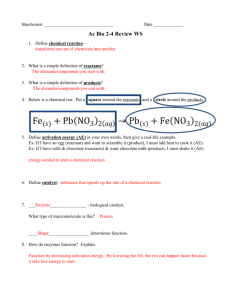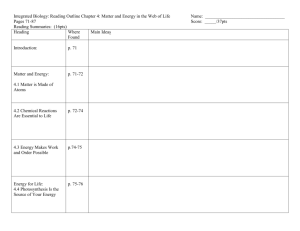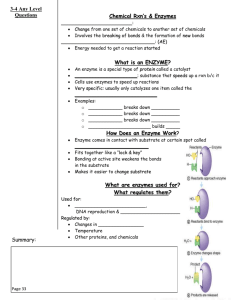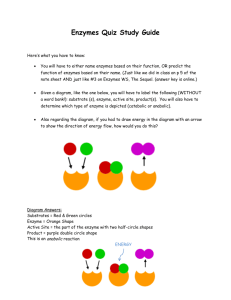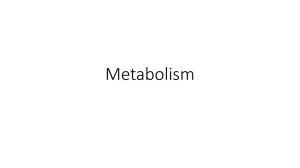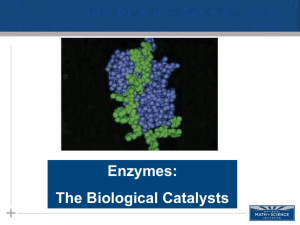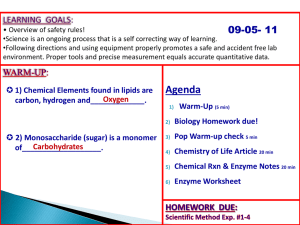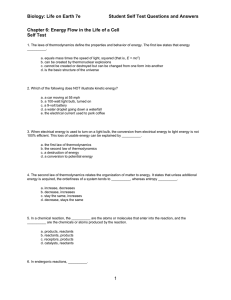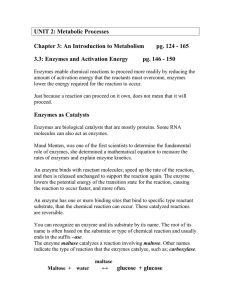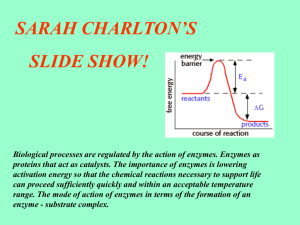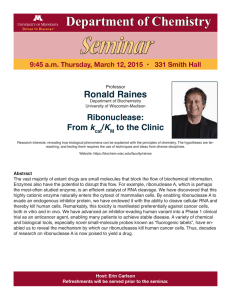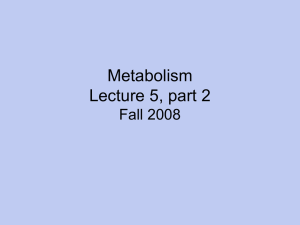Enzymes
advertisement
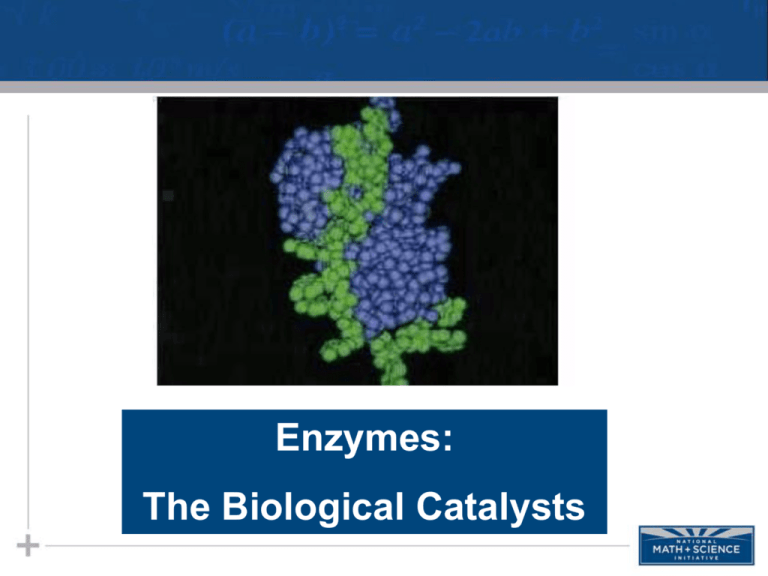
Enzymes: The Biological Catalysts Energy of Activation • If you mix two moles of hydrogen gas H2 with one mole of oxygen gas-nothing happens. • If you add a spark to the container, the following reaction occurs. KABOOM • 2H2 + O2 2 H2O G= -58 kcal/mole In order for water to be produced H2 must become 2H and the O2 must become 2O as this frees up the electrons tied up in covalent bonds, to form chemical bonds forming water, H2O. 2 Energy of Activation • The energy used to break the bonds in the reactants so they can be reformed in the products is called the energy of activation. 3 Enzymes • Enzymes are biological catalysts that increase the reaction rate of biochemical reactions. Characteristics of enzymes A. Made of proteins (or RNA). B.They are very specific and only work with a certain set of reactants or substrates that fit on The enzyme shown is lysozyme their active site. 4 Induced Fit C. Enzymes can be used over and over again. D. When an enzyme binds with the substrate, the substrate interacts with the enzyme causing it to change shape. This change in shape facilitates the chemical reaction to occur. This is called the induced fit. 5 Enzyme Example Ribonuclease • Ribonuclease decomposes RNA, and the nucleotides can be recycled. • The purple part is the enzyme; the green part is the substrate (RNA). 6 Enzymes Work by Lowering the Energy of Activation E. Enzymes increase the reaction rate by lowering the energy of activation. They do NOT change Gibbs free energy or G. 7 The Enzyme Sucrase Decomposing Sucrose 8 Initial Velocity • The reaction rate of an enzymatic reaction is always fastest at the beginning of the reaction when there is the greatest concentration of substrate. Why? 9 Effect of Increasing Substrate Concentration 10 Effect of Increasing Temperature and Reaction Rates 11 Effect of Varying pH and Enzymatic Reaction Rates 12 Effect of Competitive Inhibitors and Enzymatic Reaction Rates 13 Effect of Noncompetitive Inhibitors and Enzymatic Reaction Rates 14 Effect of Allosteric Regulation 15 Feedback Inhibition 16 Cooperativity 17
